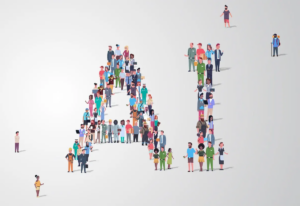The rapid proliferation of artificial intelligence (AI) technologies across Africa has engendered a compelling narrative of transformative potential. These technologies offer numerous opportunities, promising innovation, and progress in multiple sectors. However, beneath this optimism lies a complex set of ethical considerations and inclusivity challenges that demand rigorous examination.
Africa is still catching up with the rest of the world at the level at which Artificial Intelligence (AI) is utilized. However, this is not a disadvantage but an opportunity to be leveraged as it allows the continent to establish robust ethical and legal frameworks for AI before full-scale adoption. Responsible AI is the approach to developing, deploying, and utilizing AI from both ethical and legal points of view. The goal of responsible AI is to employ AI in a safe, trustworthy, and ethical fashion.
Responsible and ethical AI is critical, and it spans more than just making rules and regulations for data scientists or machine learning engineers writing codes, building algorithms, and training models. Responsible AI continues with how users aim to utilize these AI agents even after they have been developed.
In this article, we navigate the intricate landscape of AI ethics and inclusivity within African AI development. This inquiry seeks to underscore critical issues, important endeavors, and the prospective trajectories by which these imperatives can be reconciled with the burgeoning AI landscape in Africa.
Some Key Issues and Challenges
- Data Bias and Representativeness:
The underpinning concern of data bias pervades AI development in Africa. Biased data exacerbates disparities and perpetuates inequalities within the AI systems. Addressing this challenge necessitates a concerted effort to ensure that AI models are trained on datasets that accurately and comprehensively represent the heterogeneity of African populations. - Cultural Sensitivity:
AI systems and agents must be sensitive to the rich tapestry of African cultures and languages. Ensuring that AI interfaces and content are culturally sensitive is pivotal to avoid perpetuating stereotypes and guaranteeing inclusivity. - Access and Infrastructure Disparities:
Across the African landscape, access to AI technologies is far from uniform. Bridging the digital divide and surmounting infrastructure limitations present themselves as substantial inclusivity challenges. The goal is to render AI accessible not merely to urban centers but also remote and underserved regions. - Privacy and Data Protection: 

The establishment of robust data privacy and protection regulations is imperative to instill trust in AI systems. Crafting a regulatory framework that balances fostering innovation and safeguarding privacy is a critical challenge several African nations are earnestly addressing through legislative and policy measures.
These multifaceted issues encapsulate the ethical and inclusivity dilemmas that African AI development must grapple with. While each challenge is unique, they collectively underscore the imperative for a comprehensive approach that balances innovation with equity and ethical responsibility in the realm of AI development on the African continent.
Importance of Responsible and Ethical AI in Africa
- Equity and Inclusivity:
African societies are diverse, with multiple languages, cultures, and traditions. Ethical AI recognizes and respects this diversity, striving to be inclusive and avoid bias. This ensures that AI systems do not discriminate against or exclude certain groups, helping to bridge societal divides. - Public Trust:

Building and maintaining public trust in AI technologies is essential for their adoption and efficacy. Ethical AI practices ensure establishing and maintaining such trust, ensuring AI systems’ transparency, reliability, and societal benefit. - Alignment with Sustainable Development Goals:
AI has the potential to contribute significantly to the attainment of the United Nations’ Sustainable Development Goals (SDGs), spanning a spectrum from poverty eradication to ensuring quality education and access to clean energy. Ethical AI practices are intrinsically aligned with these objectives, thereby serving as catalysts in expediting progress toward their realization. - Mitigation of Harms:
The deployment of responsible and ethical AI technologies in Africa assumes paramount significance in forestalling potential adverse consequences and the misuse of AI. In Africa, where vulnerable populations may be more susceptible to negative impacts, ensuring the ethical use of AI is a matter of social justice.  Long-term Sustainability:
Long-term Sustainability:
Developing AI technologies with long-term sustainability in mind is vital. This means considering environmental impacts, resource conservation, and the responsible management of technology to ensure it benefits future generations.
Adapting Responsible AI Principles in African Economic Development
The premise is that AI has the potential to drive economic growth and transformation in various sectors, such as healthcare, agriculture, finance, and education, and many African countries and regions are increasingly looking to harness the power of AI to enhance their economies. However, in the quest to use AI for economic transformation, should the guardrails of “responsible AI” look different in Africa than in the global North?
This raises an important and complex issue regarding using artificial intelligence (AI) for economic transformation. It revolves around whether the principles and guidelines for “responsible AI” should be adapted or customized to suit African countries’ unique contexts and challenges instead of following the global standards established by more developed nations.
This implies a recognition that the challenges, cultural norms, and socioeconomic conditions in Africa may differ significantly from those in more developed regions. While the fundamental principles of responsible AI should still apply, it’s crucial to acknowledge Africa’s unique challenges and opportunities. The goal is to strike a balance between fostering economic transformation through AI and ensuring that it is done in a way that respects local values, addresses specific challenges, and promotes fairness and inclusivity. This might involve adapting or customizing the guardrails of responsible AI to suit the African context better while still upholding ethical standards.




